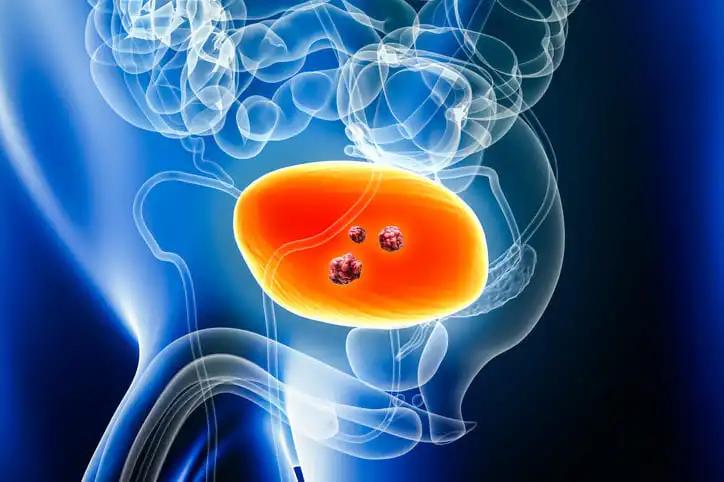KEY TAKEAWAYS
- The phase 2 trial aimed to investigate the safety, tolerability, and preliminary efficacy of BL-B01D1 in patients with metastatic UC.
- Researchers noticed manageable safety and promising antitumor activity with BL-B01D1; further investigation is ongoing.
BL-B01D1 is a potentially first-in-class antibody-drug conjugate (ADC) that consists of a bispecific EGFR x HER3 antibody linked to a novel topoisomerase I inhibitor payload (Ed-04) via a cleavable tetrapeptide-based linker.
Dingwei Ye and the team aimed to present the safety and efficacy data from a phase I clinical study evaluating BL-B01D1 in patients with locally advanced or metastatic urothelial carcinoma (UC).
They performed an inclusive analysis in this phase Ib/II study, which enrolled patients with locally advanced or metastatic UC. Patients were administered BL-B01D1 at doses of 2.0, 2.5, and 2.75 mg/kg on Days 1 and 8 of a 21-day cycle (D1D8 Q3W).
About 32 patients with UC were enrolled in the study as of April 29th, 2024, on the Q3W treatment schedule. Of these, 29 patients were treated at a dose of 2.2 mg/kg, 2 patients at 2.5 mg/kg, and 3 patients at 2.75 mg/kg. The median number of prior lines of systemic treatment was 2, with a range of 1-7. Among the patients dosed at 2.2 mg/kg, 23 were evaluable for efficacy.
The objective response rate (ORR) was 43.5% (10 out of 23 patients), the confirmed ORR (cORR) was 34.8% (8 out of 23), and the disease control rate (DCR) was 91.3% (21 out of 23). The median progression-free survival (mPFS) was 5.5 months.
For patients pretreated with one chemotherapy line, the ORR was 90% (9 out of 10 patients), with a cORR of 80% (8 out of 10), and the mPFS was not reached.
The most common treatment-related adverse events (TRAEs) at the 2.2 mg/kg dose (occurring in ≥20% of patients, all grades/≥Grade 3) were anemia (74%/17%), leukopenia (65%/26%), thrombocytopenia (65%/26%), neutropenia (44%/22%), nausea (39%/0%), decreased appetite (30%/4%), hypoalbuminemia (30%/0%), vomiting (30%/0%), decreased lymphocyte count (22%/4%), alopecia (22%/0%), and stomatitis (22%/0%). No cases of interstitial lung disease (ILD) were observed, and no new safety signals were identified.
The study concluded that in patients with heavily pretreated UC, BL-B01D1 demonstrated manageable safety and showed encouraging antitumor activity. Ongoing evaluation of BL-B01D1 in this patient population is warranted to further assess its therapeutic potential.
The trial was sponsored by the Sichuan Baili Pharmaceutical Co., Ltd.
Source: https://cslide.ctimeetingtech.com/esmo2024/attendee/confcal/show/session/14
Clinical Trial: https://clinicaltrials.gov/study/NCT05785039
Ye D, Bian X, Yang T, et al. (2024). “BL-B01D1, an EGFR x HER3 bispecific antibody-drug conjugate (ADC), in patients with locally advanced or metastatic urothelial carcinoma (UC).” Presented at ESMO 2024 (Abstract 1959O).



